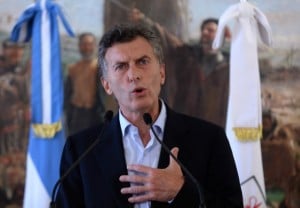Argentina – A Political Earthquake

All Global Research articles can be read in 51 languages by activating the Translate Website button below the author’s name.
To receive Global Research’s Daily Newsletter (selected articles), click here.
Click the share button above to email/forward this article to your friends and colleagues. Follow us on Instagram and Twitter and subscribe to our Telegram Channel. Feel free to repost and share widely Global Research articles.
***
On Sunday, 19 November, the extreme neoliberal Javier Milei won the run-off elections with 56% against 44% for the present Peronist (center left) Minister of Economy, Sergio Massa. This is more than a surprise. On 23 October, during the first-round vote, Massa had a 36% to 30% lead. Massa is an experienced economist and well-versed politician. Milei is neither.
However, Milei boasts he will drastically reduce Argentina’s inflation, currently more than 140%, get rid of the Argentine Central Bank and adopt the dollar as the national currency, replacing the Peso. This is just one of his radial neoliberal measures he plans for Argentina.
Introduction of the US dollar as the national currency is the most drastic measure Milei announced way ahead of the elections – and it would be more than surprising if Argentinians just 22 years after the economy totally collapsed (2000-2002), precisely because then-President Carlos Menem’s dollarized Argentina in 1991 by pegging the Peso 1:1 against the dollar. Already then, the argument was “fighting inflation.”
This “argument” was strongly advanced by Washington and the IMF, while every sane economist knows that you cannot run a country which has its own culture and economic parameters with the currency of another country. It is unbelievable, that neither Washington, the FED, nor the IMF should have no even-headed economists.
In today’s George Orwell’s 1984 world, everything goes. If people go along, why not. The Tavistock Institute, whose specialty is social engineering and mind manipulation, will take care of it. In the Western world, it happens almost permanently.
There is one country in South America, Ecuador, which is since 2000 fully dollarized. Almost exactly when Argentina’s economy sank into an abyss, because of dollarization, the then right-wing Ecuadorian President Jamil Mahuad, under pressure from Washington / FED and the IMF, dollarized the hydrocarbon-rich South American nation – allegedly for the same reason, “hyperinflation.”
No lesson learned by sovereign Ecuador. Her economy runs by petrol income. More than 50% of export earning stem form petrol – and US oil companies control the rich Ecuadorian hydrocarbon resources.
Ever since, the US dollar replaced Ecuador’s national currency, the Sucre. Ecuador’s economy is enslaved to Washington’s economy, hovering in a crisis, some times more than others. To the detriment of the population, Ecuador’s politicians are easily manipulated and corrupted by the US.
Argentina has a diversity of riches – and a well-educated population. Those factors have helped Argentina to recover relatively well after the downfall 20 years ago.
Image: Mauricio Macri
Argentinians, for sure have not forgotten the misery they went through 20 years ago, and a similar onslaught of poverty-inducing economic measures by another neo-liberal /neo-fascist president, Mauricio Macri (December 2015 – December 2019) – a four-year period during which Macri made sure that the riches gained by hardworking Argentinians during the 15 years of recovery, were transferred north – to the IMF, Wall Street, and the elites of the Unite States, Europe and international corporations.
The same is happening now. And most Argentinians, according to the election results, would go along? Hardly.
So, there must be a hidden agenda to subdue and “social-engineer” the masses so that they refrain from protesting, no questions asked, with a new fraud dismantling their economy under the pretext of reducing inflation.
Inflation can be artificially-induced, especially in countries whose economies are strongly dependent on the US dollar, as is Argentina, despite her efforts to de-dollarize by trading in local currencies. This works well with China, Argentina’s second largest trading partner (2022).
As part of Mercosur, Brazil is Argentina’s main trading partner for both exports and imports, followed by China, the United States, India, Chile, Paraguay, and Germany. Other than China, most of these countries trade in US dollars or the dollar-dependent Euros.
By far the largest investor in Argentina is the US, with more than US$ 12.6 billion (2022), mainly in agriculture, manufacturing, oil and gas, communications and technology, and financial services. This is an increase of 3.6 % over 2021. A sign that dollar-dependency may be increasing.
With dollars flooding the nation, artificially generating inflation in a country proven vulnerable for hyper price hikes already in the 1980s, is like 101 of manipulating economics.
Argentina is a member of China’s Belt and Road. The BRICS Summit in August 2023 in Johannesburg, South Africa, welcomed Argentina as one of the six new BRICS members as of 1 January 2024.
How the Belt and Road and the new BRICS membership will fit into Milei’s radical neoliberal agenda remains to be seen.
If Javier Milei, who has the support of Donald Trump and Elon Musk, succeeds in pulling through with his radical economic measures, the population may be programmed for enormous hardship like in 2001 / 2002, or worse. Working then in Argentina, experiencing this misery first hand, it is difficult to believe that Argentinians would be so easily and so quickly “forgettable”, just to be duped again with the same medicine.
There is so far no proof, but it is more than suspicious, and likely that there was fraud involved in these run-off elections. This often happens, a sudden turn-around between the first election results and the run-off vote. Curiously, there are never any exit polls taken by neutral observers in such crucial and fraud-prone elections.
Question: will Argentina succumb to the globalists, giving up her riches for an international US-led elite, giving away for the third time in about three decades, Argentina’s fortune and resources to a globalist clan, led by the visible face of the World Economic Forum (WEF), but whose strings are pulled by a financial elite lurking in the dark?
*
Note to readers: Please click the share button above. Follow us on Instagram and Twitter and subscribe to our Telegram Channel. Feel free to repost and share widely Global Research articles.
Peter Koenig is a geopolitical analyst and a former Senior Economist at the World Bank and the World Health Organization (WHO), where he worked for over 30 years around the world. He is the author of Implosion – An Economic Thriller about War, Environmental Destruction and Corporate Greed; and co-author of Cynthia McKinney’s book “When China Sneezes: From the Coronavirus Lockdown to the Global Politico-Economic Crisis” (Clarity Press – November 1, 2020).
Peter is a Research Associate of the Centre for Research on Globalization (CRG). He is also a non-resident Senior Fellow of the Chongyang Institute of Renmin University, Beijing.
Featured image is from CoinGape


